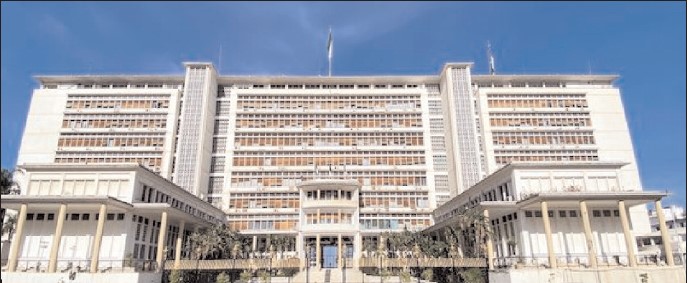Physical Address
Indirizzo: Via Mario Greco 60, Buttigliera Alta, 10090, Torino, Italy
Physical Address
Indirizzo: Via Mario Greco 60, Buttigliera Alta, 10090, Torino, Italy


The improvement of material conditions and services at the level of primary schools, the mechanisms for appropriation of technological transfer and the construction of a national development model based on innovation and the results of scientific research, within the framework of strengthening the economic role of Universities, and the national nomenclature of recycling and waste recovery sectors, were on the menu, Tuesday, of the Government meeting chaired by the Prime Minister, Sifi Ghrieb. A meeting, during which, indicated a press release from the services of the Prime Minister, the Government examined, firstly, a draft presidential decree setting the conditions and modalities for the creation of artistic works in public spaces and their maintenance.
“This draft text aims to establish a regulatory framework for the creation and production of works of art in public space, in particular statues, monuments and memorials, which reflect the historical, cultural and social importance of the Algerian nation, by defining the conditions and modalities of their creation and their production, as well as the applicable technical and aesthetic standards and specifications,” specified the same source.
As part of the implementation of the instructions of the President of the Republic, Abdelmadjid Tebboune, relating to the improvement of material conditions and services at the level of primary schools, the Government, continued the press release from the Prime Minister’s services, heard a communication on the Emergency Action Plan intended to improve the quality of schooling for students, in particular, added the same source, with regard to food, maintenance, heating, transport and the provision of staff for the current school year, particularly for the benefit of students living in remote and rural areas.
During this meeting, noted the same source, the Government also heard a communication on the mechanisms for appropriation of technological transfer and the construction of a national development model based on innovation and the results of scientific research, as part of strengthening the economic role of Universities.
“The roadmap developed for this purpose provides for the establishment of an integrated national network, bringing together all the laboratories and technological platforms of Universities and research centers, in order to optimize the use of technical and human resources, build sustainable technological sovereignty and create a new dynamic of industrial and economic growth,” said the same source.
Finally, the Government heard a communication on the national nomenclature of recycling and waste recovery sectors.
On this occasion, the same source indicated, the strategy adopted by the country’s senior authorities was highlighted, relating to the transition to a circular economy, in particular through the recovery of waste as a strategic lever for sustainable development, allowing both to preserve natural resources, to reduce dependence on imported raw materials and to create local jobs in green sectors.
Stating that this strategy is based around the deployment of structured recycling and recovery sectors covering the entire national territory, the implementation of extended producer responsibility in order to fully involve manufacturers in the management and financing of the end of life of products and the development of modern infrastructure, aimed at transforming waste into resources and energy.
Rabah M.